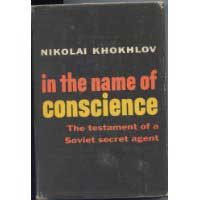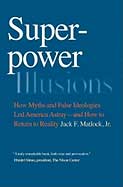
FGF E-Package
Russian-American Samizdat
September 5, 2013
To Defect or To Integrate?
Edward Snowden's Dilemma
by W. George Krasnow
fitzgerald griffin foundation
WASHINGTON, D.C. — Russia's decision to grant asylum to Edward Snowden is not just a milestone in U.S.-Russian relations. It is a mene tekel of "How the United States is Repeating the Mistakes that Destroyed the Soviet Union."
This was the topic that the Russia Experts Panel discussed at its inception a year ago. The Panel members refuse to yield to the anti-Russian bias of the U. S. mass media as they offer dissident views of world affairs. The Panel was created by Edward Lozansky, a former nuclear scientist and dissident who broke with the U.S.S.R. by applying for an Israeli visa and then settling in the United States with his family, in spite of Soviet threats.
Lozansky, who now lives in Washington, D.C., in a recent article in The Washington Times, deplores President Obama's refusal to meet with Russian President Vladimir Putin. Discussing the U.S. accusations against Snowden, Lozansky said, "Forty years ago, Soviet authorities brought the same accusation against the 'gulag whistleblower' Alexander Solzhenitsyn."
"Will there be a time when the White House and Congress will forgive (Edward) Snowden and change their attitude toward him (as) the Russian authorities changed their attitude toward Solzhenitsyn?" —Edward Lozansky
"Will there be a time when the White House and Congress will forgive (Edward) Snowden and change their attitude toward him (as) the Russian authorities changed their attitude toward Solzhenitsyn?" asked Lozansky.
Alexander Solzhenitsyn (1918-2008) was the Nobel Prize-winning Russian novelist expelled from the U.S.S.R. While professing its love for "peaceful co-existence" with the United States and other capitalist countries, the Soviet government did everything to undermine them. At home, it refused to coexist even with its own dissenting citizens. Now the U.S. government, in its drive to impose democracy and the free market on the rest of the world through a global "war on terror," does the same with its domestic whistleblowers.
As a Soviet defector and the author of Soviet Defectors: The KGB Wanted List, I want my native Russia, as well as my adoptive country, to prosper in liberty and peace. It is both ironic and unfortunate that after the collapse of the U.S.S.R., the United States yielded to the hubris of triumphalism and set itself on a course that is similar to that of the U.S.S.R. and contrary to the precepts of U. S. Constitution.
Snowden is not a Solzhenitsyn, but he is a man of conscience. His concern for the spiritual and political health of his country drove him to do what he did. No wonder many Americans admire him as a hero.
Snowden is not a Solzhenitsyn, but he is a man of conscience. His concern for the spiritual and political health of his country drove him to do what he did. No wonder many Americans admire him as a hero.
My research on Soviet defectors has shown that the overwhelming majority abandoned their country, at a huge personal risk and for uncertain future. They did not want to bend their conscience to the all-mighty state and its global communist ambition.
Among the hundreds of interviews conducted for my book, several defectors testified that, in making their decision, whether involving military intelligence or not, they were guided by conscience. One of them, Nikolai Khokhlov (1922-2007), wrote a book titled In the Name of Conscience (David McKay Company, 1959).
A trained NKVD officer, Khokhlov proved his bravery and patriotism in a guerrilla team assassination of a Nazi governor of Belarus in 1943. But in 1954, he refused to obey the order to assassinate an expatriate Russian in Berlin. He knew his refusal could be fatal and defected to become U.S. citizen and psychology professor. After the fall of the U.S.S.R., Khokhlov was pardoned and allowed to return to Russia.
The Soviet government's failure to accommodate different views within its borders resulted in a hemorrhage of talented and patriotic Russians. Some, most notably Solzhenitsyn, whose books were bestsellers in the West, greatly contributed to the preservation of peace and freedom in the world.
In 2010, Jack Matlock, the distinguished former U. S. ambassador to the U.S.S.R., published Superpower Illusions: How Myths and False Ideologies Led America Astray--And How to Return to Reality (Yale University Press, 2011). He argued after the collapse, the U. S. leaders came to believe that they did not need international organizations and diplomacy; they could dominate the world by military power.
Recently, former President Jimmy Carter went on record saying that the U. S. "no longer has a functioning democracy." Had U.S. leaders, both in the government and media, honestly pondered the serious implications of such pronouncements by seasoned diplomats and politicians, they would have been in less of a rush to condemn Edward Snowden, Bradley Manning, or Julian Assange.
An earnest effort at introspection is a must for the nation. A country that fails to integrate citizens of different ideological persuasions is bound to disintegrate.
Russian-American Samizdat archives
Russian-American Samizdat column is copyright © 2013 by W. George Krasnow and the Fitzgerald Griffin Foundation. All rights reserved.Vladislav "George" Krasnov, Ph.D., former professor and head of Russian Studies at Monterey Institute of International Studies in California, now lives in Washington, D.C., where he runs the Russia and America Goodwill Associates.
See his biographical sketch and additional columns.
To sponsor the FGF E-Package, please send a tax-deductible donation to the:
Fitzgerald Griffin Foundation
P.O. Box 1383
Vienna,VA 22183
or donate, online.
© 2013 Fitzgerald Griffin Foundation

